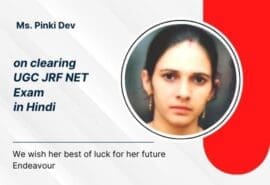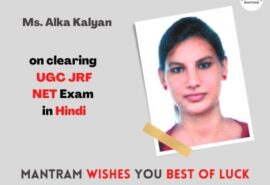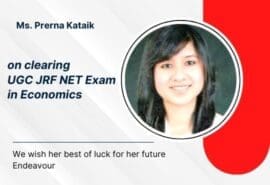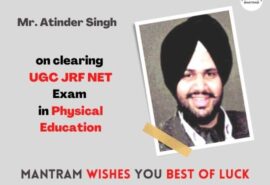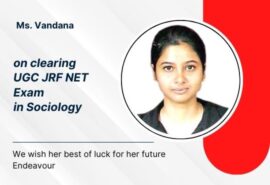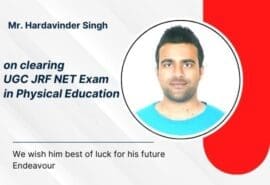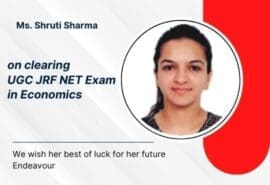
Decode the Syllabus - Ace the Sociology NET Exam
Decode the Syllabus - Ace the Sociology NET Exam
The UGC National Eligibility Test for sociology tests conceptual grasp and analytical abilities across an expansive syllabus containing over 300 topics. With dismally low clearing rates, simply relying on curriculum learning proves inadequate.
Candidates must undertake meticulous syllabus decoding to identify focal areas, derive insights into marking schemes and strategically channel preparations for excelling amid fierce competition.
Map Broad Contours
Categorize the vast sociology NET syllabus into six key domains spanning Sociological Concepts, Sociological Theories, Sociological Thinkers, Research Methods, Indian Society and Application of concepts.
Further breakdown these buckets into sub-topics like types of theories, comparative methods, caste identities, etc. Use mind maps to visualize these taxonomy linkages across domains.
For UGC JRF NET Sociology Exam Preparation Coaching, contact us at Mantram Study Group, SCO No. 80-81, First Floor, Sector 15-D, Chandigarh (Near Gate No. 2, Panjab University Chandigarh – Contact – 9779797575/ 9463049859)
Unpack Sociological Concepts
With over 100 constituent notions spanning norms, deviance, socialization and marginalization underpinning the subject, gloss over dense dictionary meanings.
Relate concepts to current issues through daily observations and media reports for enhanced understanding. For instance, view public protests through conflict theory's power dynamics.
Classify Theories & Thinkers
Beyond knowing the contributions of pioneers like Durkheim, Marx or Dubois, classify sociological theories into Structural, Interpretative, Postmodern and Integrative schools.
Similarly, group seminal thinkers by geographical contexts into Western, Indian or Perspective lenses. Analyze how later theorists extended early models on religion, ethnicity or poverty for refined frameworks.
Learn Research Tools
Sharply focus 15% syllabus weightage on research methods - surveys, ethnography, interviews, etc. Identify real research papers demonstrating empirical approaches. To answer application questions correctly, understand comparative merits, sampling principles, and analytical procedures involved through academic literature reviews.
Study Indian Sociology In-Depth
Questions often assess grasp of problems around caste, tribal identities, religious conflict and marginalization facing Indian society. Study pivotal work of G.S Ghurye, MN Srinivas, and Dipankar Gupta analyzing traditional formations like Sanskritization and modernization covering over 20% of the syllabus.
Scan Past 10 Years' Papers
Analyze previous years' NET question papers identifying the most frequently tested topics, post-colonial theories or interdisciplinary concepts that feature consistently in some form through theory, application or data-based analytical tasks to map focus areas.
Attempt Question Banks
Solve available compilations of question banks focusing on theory diagrams, definitional fill-ups, applied interpretations and analytical comparisons encompassing all syllabus sections. Brush up inaccurately answered niches, even if less probable areas. This builds holistic clarity.
Gauge Evaluative Expectations
The paper has two distinct sections. While section I stresses core concepts, section II demands a demonstration of evaluative abilities, structured writing and analytical thinking for essay-type questions within fixed timeframes. Hence, preparedness must align with both knowledge and the expected higher-order skills.
Conclusion
In conclusion, acing the sociology NET requires rigorously moving beyond curriculum readings to decode vast syllabus components, theorizing concepts for analytical application to social issues, and relating to empirical research and Indian contexts.
Such decoding enables judiciously navigating question styles, marking schemes, and competitive expectations for the optimal approach that guarantees success.
Thanks for visiting our website Mantram Study Group
CHECK OUR OTHER LINKS: -





